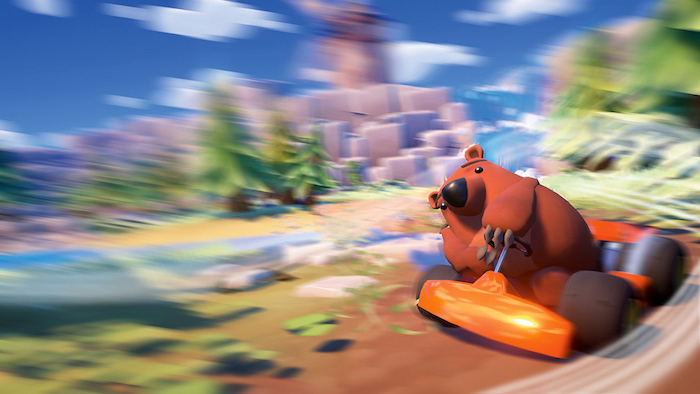Making it in the video game industry: top tips
Escape Studio’s digital artist Simon Fenton shares his tips for making it in the video games industry.

When Escape Studio’s Simon Fenton was trying to break into the video games industry back in 1995, it was a challenge. The cost of software was high and workstations were expensive. The only way in was to start as an intern or a runner.
Such tools have now become more accessible and more powerful than ever. Software is free and hardware is dropping in price all the time. But because of that, it can be difficult to know where to start.
“If you’re a student already, then Autodesk will allow you free access to its industry standard applications, which include 3ds Max, Maya and Mudbox,” says Simon. “However, if you’re not a student and are just interested in trying game development tools, you can start by making digital art with Blender for 3D art and using Sculptris for sculpting. In terms of 2D, I’d have to recommend Gimp as the free Photoshop, and Krita for a more painterly feel, if concept art is your thing. When I was teaching, I found that students who could only get access to Blender made the transition to learning an industry standard package like Maya with very little trouble.”
Prospective coders interested in learning technical art should turn to Houdini, the gold standard in procedural art tools, and Houdini Indie is easy on the wallet.
Start your engines

You should start exploring game engines, explains Simon: “The two to try are Unreal Engine 4 or Unity, both free and fantastic. Although take heed of one word of warning: if you want to create any interactions, then Unity requires you to learn C# scripting, whilst Unreal has an artist-friendly, node-based system called BluePrint.”
Whatever art packages you use, it’s important to remember that they are just tools. Anybody can press a button or add a filter. In the end, it’s your core skills that will help you create great work for your portfolio. “You need to demonstrate through art that you can observe reference, and translate it into a game’s context and a particular style,” says Simon. “It’s important that your work shows that you understand real-time rendering, as well as all of the constraints that go along with it.”
You should also work to practise your transferable skills, the kind that’ll help when working alongside others.
Daily design news, reviews, how-tos and more, as picked by the editors.
“Admittedly, proving that you can work as a team is a little tricky unless you create mods or contribute at game jams, so it’s important to be aware of when such events are happening near you,” says Simon. “Escape has recently run a game jam in association with Playhubs, and it was great to see people producing phenomenal work together. Working in teams helps you communicate, express ideas and – most importantly show that you are engaged at a community level, learning from your peers whilst contributing at the same time. Of course, it can be intimidating going to a jam, but it’s important to remember you are amongst like-minded people who are just as nervous as you.”
This article was originally published in 3D World magazine issue 213. Buy it here.
Related articles
